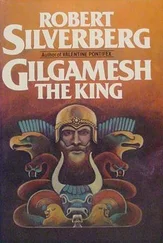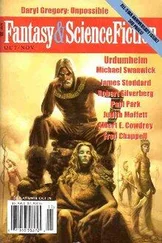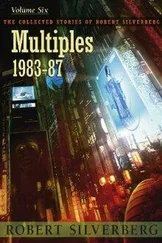Robert Silverberg - Kingdoms of the Wall
Здесь есть возможность читать онлайн «Robert Silverberg - Kingdoms of the Wall» весь текст электронной книги совершенно бесплатно (целиком полную версию без сокращений). В некоторых случаях можно слушать аудио, скачать через торрент в формате fb2 и присутствует краткое содержание. Год выпуска: 1992, ISBN: 1992, Издательство: HarperCollins, Жанр: Фантастика и фэнтези, на английском языке. Описание произведения, (предисловие) а так же отзывы посетителей доступны на портале библиотеки ЛибКат.
- Название:Kingdoms of the Wall
- Автор:
- Издательство:HarperCollins
- Жанр:
- Год:1992
- ISBN:0-246-13719-3
- Рейтинг книги:3 / 5. Голосов: 1
-
Избранное:Добавить в избранное
- Отзывы:
-
Ваша оценка:
- 60
- 1
- 2
- 3
- 4
- 5
Kingdoms of the Wall: краткое содержание, описание и аннотация
Предлагаем к чтению аннотацию, описание, краткое содержание или предисловие (зависит от того, что написал сам автор книги «Kingdoms of the Wall»). Если вы не нашли необходимую информацию о книге — напишите в комментариях, мы постараемся отыскать её.
Kingdoms of the Wall — читать онлайн бесплатно полную книгу (весь текст) целиком
Ниже представлен текст книги, разбитый по страницам. Система сохранения места последней прочитанной страницы, позволяет с удобством читать онлайн бесплатно книгу «Kingdoms of the Wall», без необходимости каждый раз заново искать на чём Вы остановились. Поставьте закладку, и сможете в любой момент перейти на страницу, на которой закончили чтение.
Интервал:
Закладка:
I thought I saw where he was heading now, and I didn’t like it.
“Undertaking the Pilgrimage is the most important deed any of us can do,” I said. “The Pilgrims are our greatest heroes. Even if they don’t manage to learn the things that you think they’re supposed to be learning up there. By sending them up the Wall, we pay our debt to the gods, as He Who Climbed taught us that we must, and so we insure their continued blessing.” You can see that I was quoting catechism again.
“Exactly,” Traiben said. “Pilgrims are heroes, no doubt of that. But they are sacrifices, also.”
I stared. I had never seen it that way.
He said, “And so the Masters choose people like you, who are strong and determined, or people like me, who are clever and resourceful. That’s what heroes are like. But you and I are troublesome in other ways. We may be heroes, yes, but we’re too odd and too prickly to make good leaders down here, you and I. Can you imagine yourself as the head of the House? Or me? And so we can be sacrificed. We can be spared for the Pilgrimage. Whereas Baligan obviously will head his House some day. And Moklinn has a perfect body: it mustn’t be wasted on the Wall.”
“Thrance had a perfect body too,” I said. “But he was chosen.”
“And has failed to return, isn’t that so? Thrance was selfish and proud. Perhaps the Masters thought the village was well rid of him.”
“I see,” I said, though I wasn’t quite sure that I did.
I was shaken by what Traiben had said. In just a few minutes he had once again turned my world upside down. I had been so very pleased that I had managed to last through the First Winnowing. I wondered now: Was my surviving the Winnowing really something to be proud of, or was it merely the sign of how willing the village was to dispense with me?
But just as quickly I recovered my equilibrium. Becoming head of my House had never been part of my plan. To make the Pilgrimage was. I had passed the first of my many tests: that was all that really mattered.
And so my candidacy began.
The early days of it saw a surprisingly gradual onset of the demanding discipline of the selection process. We were divided into forty groups of about a hundred each—Traiben and I landed in different groups—and from then on we moved as a group from one House to the next for our instruction and our examinations. But at first everything was deceptively easy.
We were asked at the beginning to write short essays on why we wanted to be Pilgrims. I remember mine almost to the word:
“1. Because I believe that undertaking the Pilgrimage is the finest thing anyone could possibly do. It is our duty to go to the gods above and worship them and learn from them the things they have to teach us. Of all the traditions of our people, it is the holiest and noblest, and I have always wanted to be obedient to our great traditions.
“2. Because my father was a Pilgrim in his time and I think and hope that he may still be dwelling in one of the Kingdoms of Kosa Saag. I have not seen him since I was a small child and it is my great dream to encounter him once again when I climb the Wall.
“3. Because I have spent my whole life looking up at Kosa Saag and marveling at its greatness, and now I want to test my strength against the mountain and see if I am equal to what it will ask of me.”
It was a good essay. At least, it got me through the Second Winnowing. Ninety of us were dismissed at that Winnowing. Whether it was for writing poor essays or for some other reason, I have no idea; but I suspect the essays really were of no great significance in the process. It was the task of the Masters to find some reason or other for discarding all but forty of us in the course of the four years, and they could use almost any pretext at all—or none—for dropping us from the roster.
Then there was religious instruction. We read the Book of the First Climber, though of course we had read it a thousand times already, and we discussed the story of His life, His conflict with the elders and His being cast out of the village and His decision to climb the Wall, which at that time was not permitted, and the things that He learned during His Pilgrimage on its heights. And also we were drilled in the names and visages of the gods and all their special attributes, as if we could expect to meet them along the mountain path and must therefore be sure to recognize them and greet them with the proper greeting. So we sat in the little hut of instruction as though we were small children while someone from the House of Holies held up one sacred portrait after another, and we shouted out the names: “Kreshe! Thig! Sandu Sando! Selemoy!” It felt strange to be back in school, since, as is true of almost everyone else, my formal education had ended with my first ten of years. But for all we knew we would meet Thig and Selemoy and Sandu Sando on the slopes of the Wall; and so we listened to the old stories all over again—how Kreshe had made the World and set it afloat on the Great Sea and how Thig the Shaper had reached into the still molten rock of the new-made World and pulled the Wall out of it, stretching it high in order to make a place for us to live that would be close to the stars, and how after the sin of our First Fathers we had been hurled down from the Summit into the lowlands by Sandu Sando the Avenger and forbidden to return until we were worthy, and all the rest of the tales of our childhood.
In those first days we had to go to other classes where we were taught the nature of the Wall. The most remarkable thing about these classes was how little seemed to be known about Kosa Saag, for all the thousands of years that we had been sending our Pilgrims up its face.
Our teachers, of course, had never been very far up the Wall themselves: just the usual excursions to the permitted holiday zones just above the village, and no farther. There was nothing very surprising about that, I suppose. Our teachers had never been Pilgrims. Only the Returned Ones had any firsthand knowledge of the extraordinary place where we were going to go, but you wouldn’t really expect Returned Ones to do anything so obvious and straightforward and useful as to come into our classrooms and give us lectures on what they had experienced. That is not their way. I had hoped that they would make an exception to their rule of lofty and mystical withdrawal from all daily matters for the sake of helping us understand what was in store for us, but they did not do it. The Returned Ones shared nothing with us, nothing at all. And so our teachers, who were just the usual babbling drudges from the House of Scholars, served us up a foggy thirdhand mix of rumor, legend, and guesswork which was just about as close to useless as anything could be.
They taught us that the Wall is a place where the power of the gods is so great that change comes freely and amazingly to those who live their lives upon it, and all is magic and mystery and strangeness beyond our comprehension. And they warned us of the danger of encountering change-fire as we climbed. The very stones of the Wall, they said, give off a secret heat that will kindle into raging conflagration the flame of transformation that always burns quietly and gently within us, and turn climbers into monsters if they are willing to let it happen.
Everything was fluid up there, they said. Nothing was fixed, nothing was as we understood things to be. It was all because of that strange fire that lay within the rocks, which no one could see but which was easy enough to feel. “The Wall is said to be a place where reality bends,” our teachers told us solemnly. How were we supposed to interpret that? They couldn’t say. “On the Wall,” they declared, “the sky sometimes is below and the ground is above.” Well, yes, and what were we to make of that? They spoke of monsters, demons, and demigods who waited for us above the cloud-line in the innumerable Kingdoms of the Wall. They warned us of lakes of fire and trees of metal. They talked of dead people who walked with their feet turned back to front and their eyes staring like hot coals out of the backs of their heads. They let us read the Secret Book of Maylat Gakkerel, which was supposed to be the three-thousand-year-old testimony of the only Returned One who had ever said anything at all about what he had encountered while climbing Kosa Saag, other than the First Climber Himself. But unlike the Book of the First Climber, which is stark and simple in its narrative of His visit to the abode of the gods and its account of the things they taught Him while He was there, the Secret Book of Maylat Gakkerel was all ornate parable and poetry, a welter of fanciful detail written in a cryptic style so remote from any kind of modern speech that it had to be embedded in footnotes and commentary a dozen times as long as the Secret Book itself. Very few of us could get through more than a dozen pages of it. All I remember was a kind of feverish haze of murky description that made no sense, a magical fairytale of heights that turned into abysses, of raindrops that became knives, of rocks that danced and sang, of demons who furiously hurled their limbs one by one at climbing Pilgrims until there was nothing left of them but bouncing skulls, of wise men who offered counsel along the way but spoke all their words in backwards language. The whole of the Secret Book might just as well have been written in backwards language for all the help it gave me.
Читать дальшеИнтервал:
Закладка:
Похожие книги на «Kingdoms of the Wall»
Представляем Вашему вниманию похожие книги на «Kingdoms of the Wall» списком для выбора. Мы отобрали схожую по названию и смыслу литературу в надежде предоставить читателям больше вариантов отыскать новые, интересные, ещё непрочитанные произведения.
Обсуждение, отзывы о книге «Kingdoms of the Wall» и просто собственные мнения читателей. Оставьте ваши комментарии, напишите, что Вы думаете о произведении, его смысле или главных героях. Укажите что конкретно понравилось, а что нет, и почему Вы так считаете.












